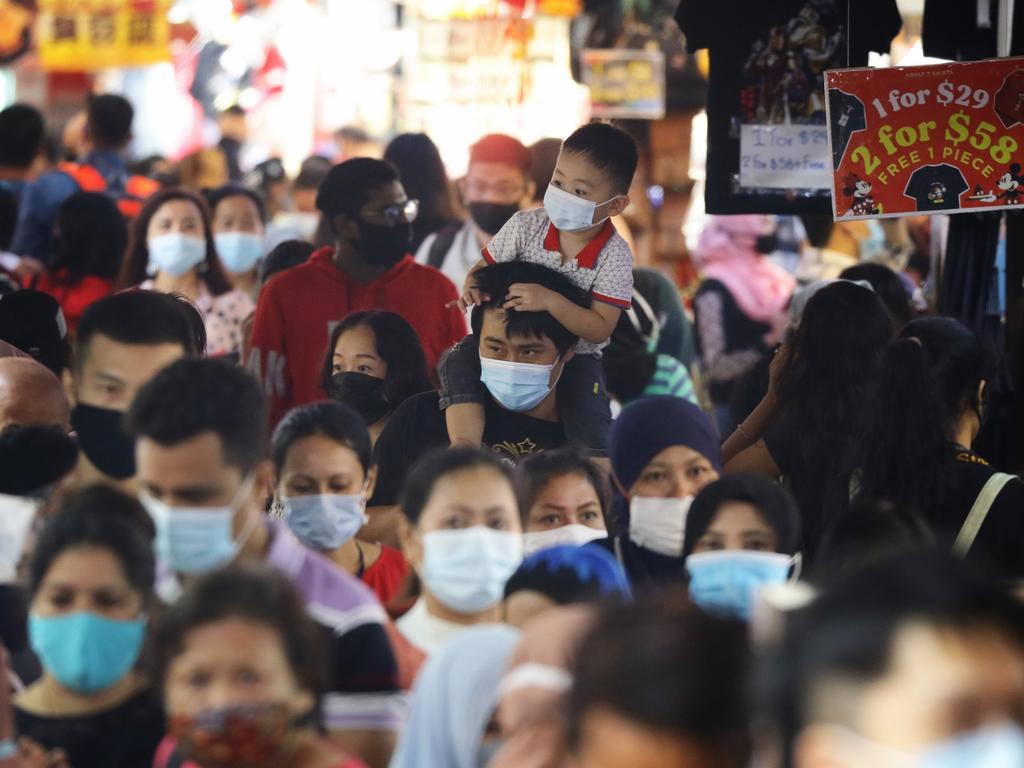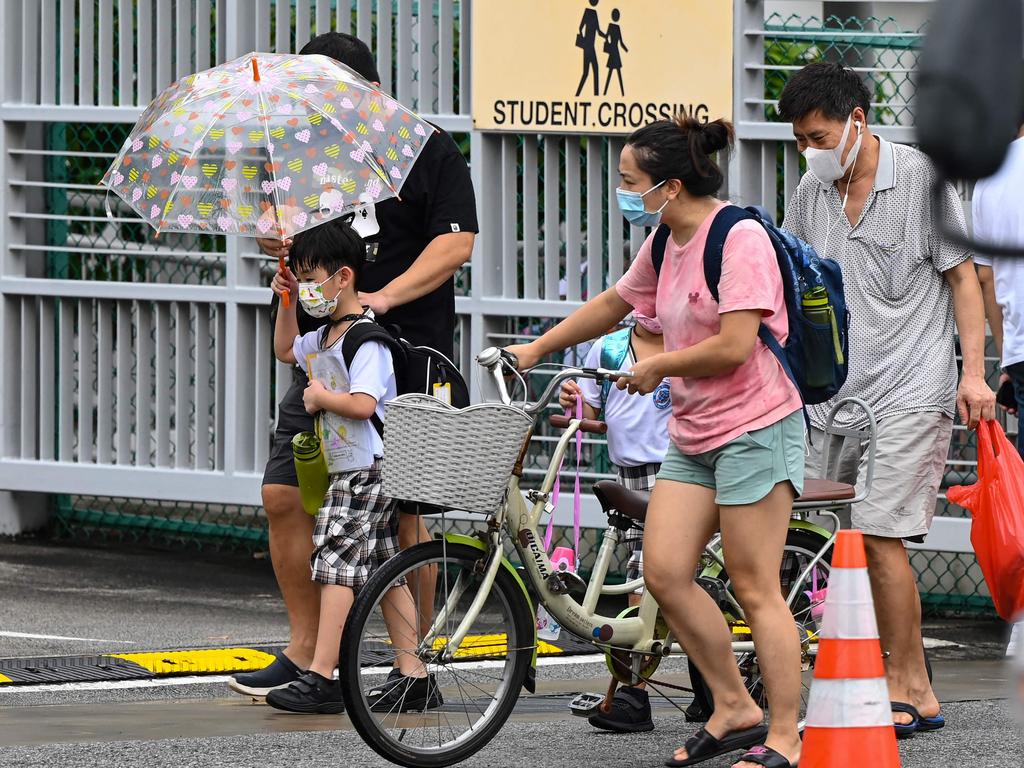If life is back to normal. Why still need to wear face masks?
Life in country that’s 80 per cent vaxxed
Since June, this Asian country has made a plan to ‘live with Covid’ and now with one of the highest fully-vaxxed populations, life is almost back to normal.
Expert says herd immunity ‘not a possibility’ as Delta ravages the world
NOW PLAYING
Resume
- What will happen when Australia opens?
2:08
Sutton - We might not get to zero but we will not let Delta run
2:30
Herd immunity is “not a possibility” with the Delta strain…
With 80 per cent of their total population fully vaccinated, life in Singapore could serve as a blue print to what ‘living with Covid’ might look like.
This comes despite the country recording a high of 216 locally transmitted cases on Friday after a large clusters emerged at Changi General Hospital and a popular bus terminal.
Yet, the Director of Medical Services at the Ministery of Health, Kenneth Mak said the rise in cases was “not unexpected,” with the country not implementing tighter restrictions.
ADVERTISEMENT
CONTENT RESUMES ON SCROLL
Since August 6, fully-vaccinated Singaporeans have been able to eat at restaurants in groups of five, with household allowed to receive five visitors as well. Un-vaccinated individuals who can prove a negative pre-event test are also able to benefit. As of August 19, workplaces have also been able to welcome 50 per cent of staff back to the office as well.
Singapore has been one of the greatest Covid success stories during the pandemic. Picture: Suhaimi Abdullah/Getty Images.
Live performances, cinemas, sports events, exhibitions, conferences and weddings have also been given the green light to go ahead with up to 1000 vaccinated attendees and up to 50 unvaccinated attendees.
Travel is back too. In late August, they also announced plans to reopen their borders and allow quarantine-free travel for vaccinated residents between
Hong Kong, Macao, Germany and Brunei, beginning from September 8.
Singapore now ‘Covid-resilient’
A phrase termed by Singapore’s COVID-19 multi-ministry task force co-chair, Lawrence Wong, the senior official said the country’s high vaccination coverage has meant they’re able to move into a new phase of “living with Covid and becoming Covid-resilient”. This meant that even with a slight rise in cases, the government has refrained from introducing new restrictions.
“We would only revert to such a tightened posture as a last resort to prevent our hospital system from being overwhelmed,” he told local news station, Channel News Asia.
“Our enforcement officers continue to be on the ground. They are inspecting different establishments, and they will enforce the rules fairly and firmly.”
And for those that break the rules, the punishment is severe.
Quarantine violations carry a penalty of a fine of up to S$10,000 (AU$10,012), up to six months in jail, or both.
First-time offenders who breach safe distancing measures like not wearing face masks, or breaching safety measures are fined S$300 (AU$300), and S$1,000 (AU$1012) for their second violation. Repeat offenders may also face prosecution for court and even higher offences if found guilty.
Masks are still a critical part of Singapore’s Covid-19 prevention plan, and are mandatory for all persons six and above when leaving the home. Picture: Roslan Rahman / AFP.
From pandemic to endemic
Like Australia’s road map out of Covid, the co-chairs of Singapore’s Covid-19 multi-ministry task force have admitted that the virus may never be fully extinguished.
“The bad news is that Covid-19 may never go away. The good news is that it is possible to live normally with it in our midst,” wrote Trade and Industry Minister Gan Kim Yong, Finance Minister Lawrence Wong and Health Minister Ong Ye Kung in June this year.
Instead, their attack strategy is to take necessary precautions so it devolves into an endemic virus disease like, where “the overwhelming majority recover without needing to be hospitalised, and with little or no medication”.
“We can’t eradicate it, but we can turn the pandemic into something much less threatening, like influenza, hand, foot and mouth disease, or chickenpox, and get on with our lives,” they wrote.
Now just over two months on from releasing their initial plans, it seems like they’re succeeding.
We recommend









